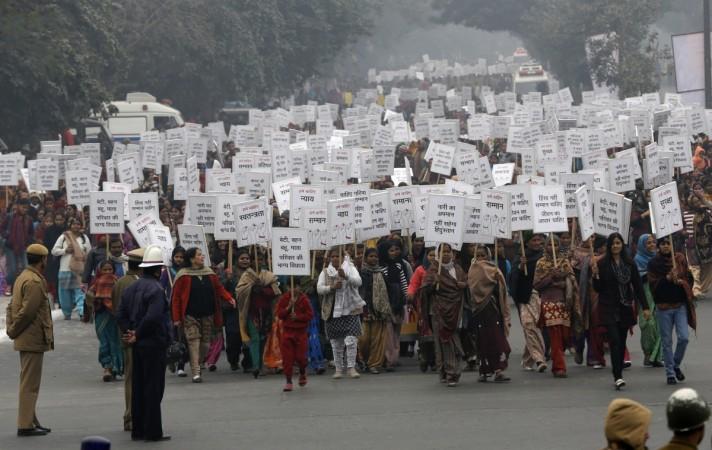
Chief Justice of India TS Thakur, while speaking at a global conference titled National Initiative towards Strengthening Arbitration and Enforcement in India by the NITI Aayog at Vigyan Bhavan, agreed that India is a bright spot in the global economy.
However, Justice Thakur pointed out that the country continues to be one of the lowest ranked in the Ease of Doing Business list of countries as foreign investors continue to be wary of India's labyrinthine and delayed justice delivery mechanism.
Back in April at the same venue, the Chief Justice of India (CJI) had emotionally broken down several times while squaring the blame on the Centre for stalling appointment of judges to the high courts. He also accused the Centre of denying the poor man and undertrial prisoners justice because of not increasing the number of courts and judges in the country.
On Sunday, Justice Thakur said: "We have over 3,000 foreign companies with operations in India. In 2015-16, there has been a 29 percent increase in foreign direct investments. We wish to overtake China and the United States by 2050... Yet we are ranked 130 among a total 189 countries in the Ease of Doing Business…The need for strengthening our judicial system is deeply connected to our ambition for economic growth."
The CJI explained that only a robust justice delivery system steered by conventional courts would effectively channel the alternative dispute resolution mechanisms like arbitration, mediation and conciliation. Civil courts should be able to hear and decide challenges to arbitration awards in a time-bound manner, Justice Thakur said.
"The avalanche of cases constantly puts the judiciary under great stress. Courts from the apex court to the Munsiff are overburdened. Judges are overworked," he said while explaining that in India, an average 18,000 judges deal with 50 million cases annually, of which 20 million cases are disposed of.
Section 29A centre of attention at Niti Aayog Arbitration conference
The conference also addressed arguments, for and against the implementation of Section 29A of the Arbitration and Conciliation Act 1996 in a panel discussion by experts from the legal community. The provision prescribes a maximum limit of 18 months to pass an award from the time a reference for arbitration is made. For an extension of 6 months, the parties will have to approach the court. Introduced last year for speedy disposal of cases, the provision was severely criticised by many present at the conference.
"Section 29A of the (arbitration) amendment act is not going to work in India. It says from the day the arbitration tribunal becomes functional, the time of 1 year begins. Six months are taken only in completing pleadings. The sensible provision would be to begin the limitation from the day the trial begins," said RC Lahoti, former chief justice of India. He was part of the panel discussion on the pros and cons of the Indian Arbitration Act.
Alexis Mourre, president of the International Chamber of Commerce, and Nish Shetty, head of litigation practice (Asia Pacific) at Clifford Chance, also suggested that the provision needs to be revisited.
"Time limit should not take away the essence of arbitration. The time limit has to be fair and reasonable, else the doctrine of due processes would be hampered in an effort to adhere to rigid time frames," Dr Mool Chand Sharma, former member of the Law Commission, also echoed similar sentiments.
However, others such as Sunil Bharti Mittal, chairman of Bharti Enterprises, and Aditya Ghosh, CEO of IndiGo, expressed support for the provision.






